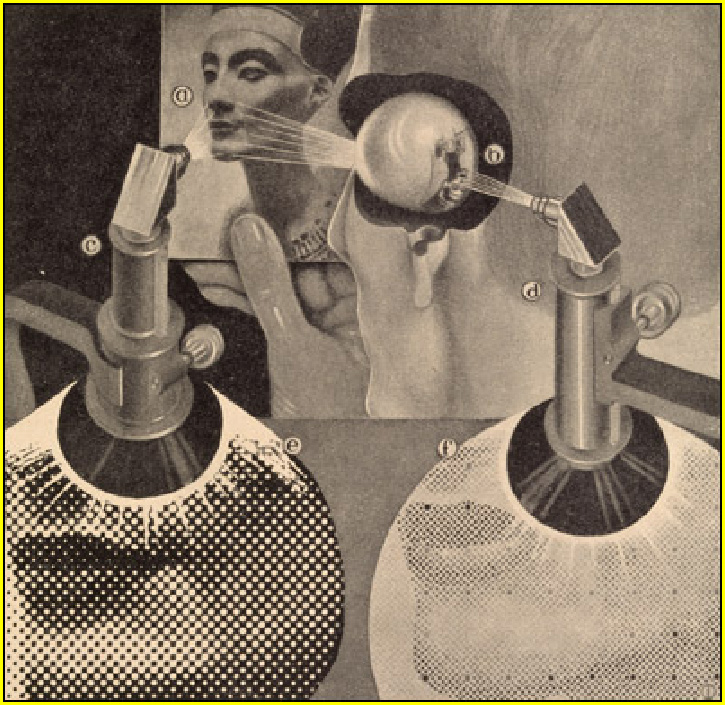An inconography of the Industrial body: Fritz Kahn, popular medical illustration and the visual rhetoric of modernity
 Date: Friday, June 19th
Date: Friday, June 19th
Time: 7:30 PM
Admission: Free
Michael Sappol, author of A Traffic of Dead Bodies
This talk focuses on the publications of Fritz Kahn (1888-1968), a German-Jewish physician. Between 1920 and 1950, Kahn was a widely-read author of books and articles for the general public on medicine, health and science. His principal works, Das Leben des Menschen [The Life of Man] (5 vols.; Stuttgart, 1922-31) and Der Mensch: Gesund und Krank [Man: In Health and Sickness] (2 vols.; Zürich, 1939) feature thousands of illustrations. Influenced by Dada, neue Sachlichkeit, surrealism, futurism, Bauhaus, constructivism, Art Deco, neo-classicism, comic strips, photomontage, and advertising graphics, Kahn, and the artists working under his direction, visually explained how the human body works, based on the findings ofodern biological science. At the same time, the images referred back to the chaos, violence, impasses, pleasures, dreams and technological and sociocultural ambitions of early and mid-20th-century Germany. Kahn deployed a visual vocabulary of modernism to figure industrial modernity within the body and the body within industrial modernity. The result was a corpus of images and tropes which imagined a new body for the modern age.
Image credit: Fritz Kahn, Das Leben des Menschen 5 (1931): 53.
Retinal imaging and halftone printing compared.
Artist: Roman Rechn.
[...] An Iconography of the Industrial Body: Fritz Kahn, Popular Medical Illustration and the Visual Rhetoric of Modernity A presentation by Michael Sappol, author of A Traffic of Dead Bodies Friday June 19th 7:30 PM Free 543 Union Street This talk focuses on the publications of Fritz Kahn (1888-1968), a German-Jewish physician. Between 1920 and 1950, Kahn was a widely-read author of books and articles for the general public on medicine, health and science. His principal works, Das Leben des Menschen [The Life of Man] (5 vols.; Stuttgart, 1922-31) and Der Mensch: Gesund und Krank [Man: In Health and Sickness] (2 vols.; Zürich, 1939) feature thousands of illustrations. Influenced by Dada, neue Sachlichkeit, surrealism, futurism, Bauhaus, constructivism, Art Deco, neo-classicism, comic strips, photomontage, and advertising graphics, Kahn, and the artists working under his direction, visually explained how the human body works, based on the findings of modern biological science. At the same time, the images refer back to the chaos, violence, impasses, pleasures, dreams, and technological and sociocultural ambitions of early and mid-20th-century Germany. Kahn deployed a visual vocabulary of modernism to figure industrial modernity within the body and the body within industrial modernity. The result was a corpus of images and tropes which imagined a new body for the modern age. (via) [...]